Art doesn’t sit outside of politics — it embeds it. In the shape of a letterform, the structure of a poster, the layout of a wedding photo, power quietly operates. For London-based Chinese queer visual artist Yu Zoe Cui, this isn’t just theory; it’s lived experience. Moving between languages, cultures, and continents, her practice doesn’t simply reflect ideology — it reshapes it. Through typography, collage, and photography, Cui asks: Who decides what is remembered? Who gets to be seen? And how can the smallest acts of making become tools for rewriting the rules?
This belief — that visual language is never neutral — pulses through all of Cui’s work, beginning with the Chinese writing system itself. Her project Women in Chinese Characters opens with a stark observation: that many characters containing the “女” (woman) radical are historically loaded with sexist connotations — jealousy, vice, submission. This isn’t a linguistic coincidence, but a reflection of deep-rooted cultural ideologies. Cui doesn’t reduce this to mere critique; she renders it felt. Moving images deconstruct the characters while personal narratives and immersive installations draw viewers into a quiet reckoning. It’s not just an exploration of language, but of how inherited systems encode power — and how they might be cracked open through visual art.
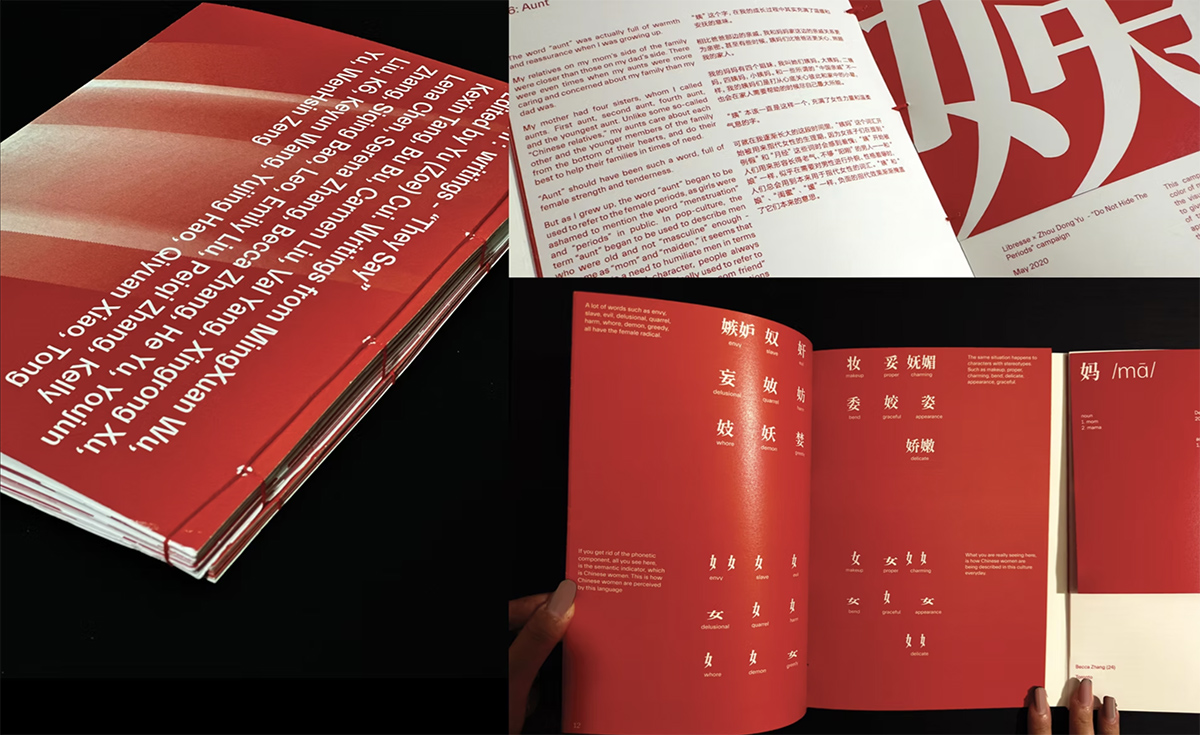
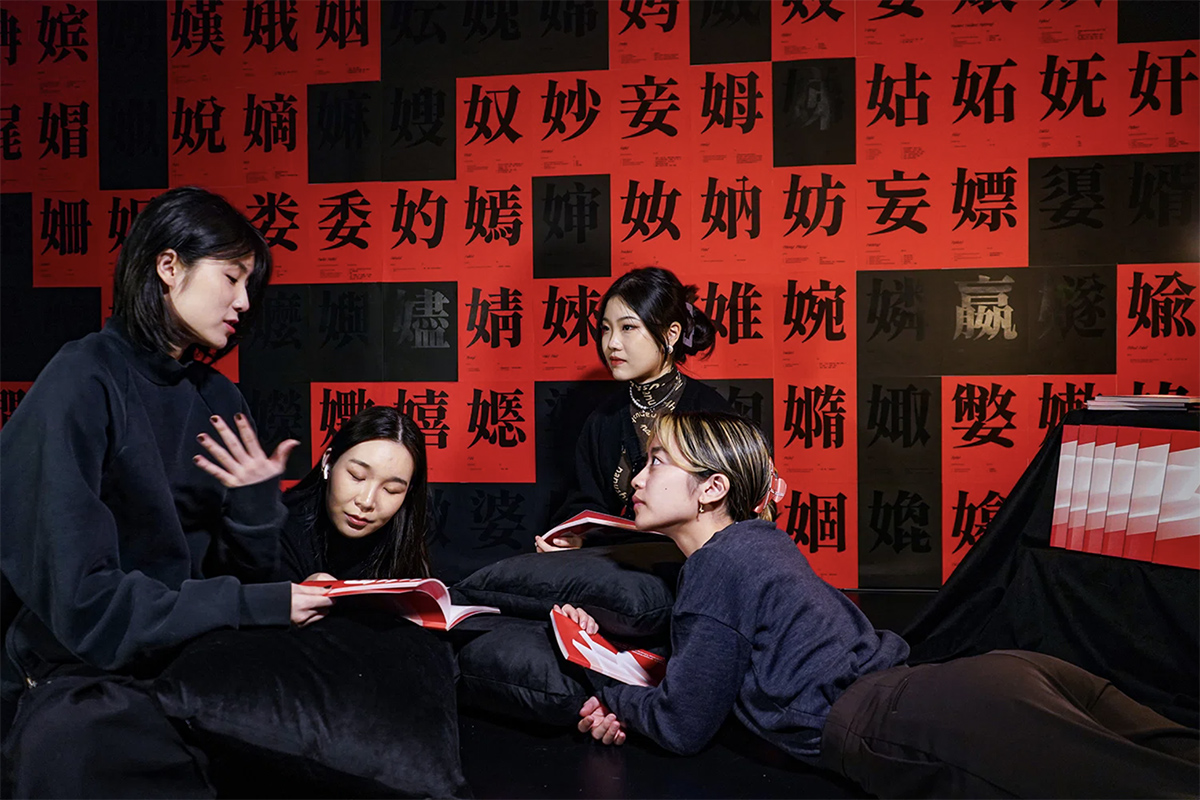

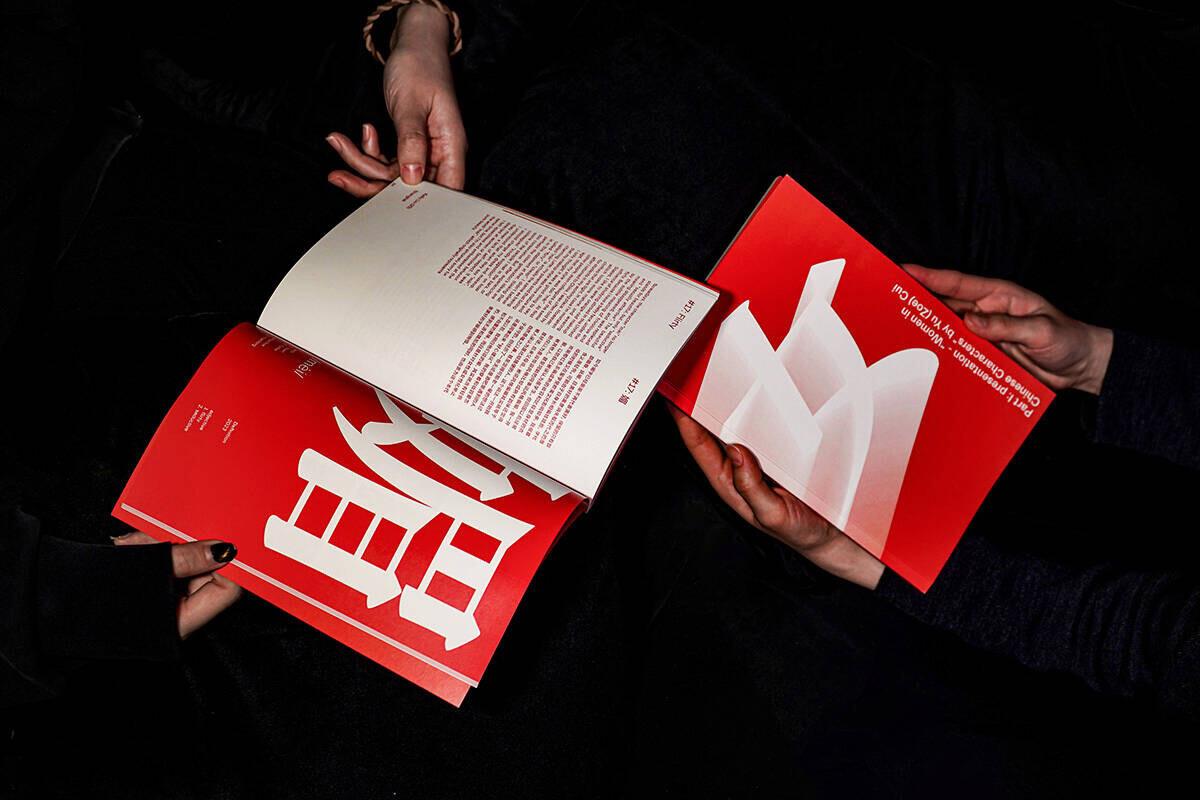

That same impulse to expose, reclaim, and reimagine emerges in her community-oriented visual art project, Forever United Gay Hearts. At its heart is a simple but radical gesture: inviting queer East and Southeast Asian (ESEA) individuals to create their own marriage certificates by collaging vintage Chinese propaganda posters. These prints — once tools of state control and heteronormative messaging — become raw material for declarations of queer love. Layered with rainbow halos, cut through with subversive slogans, the resulting works are part archive, part dreamscape, part resistance.
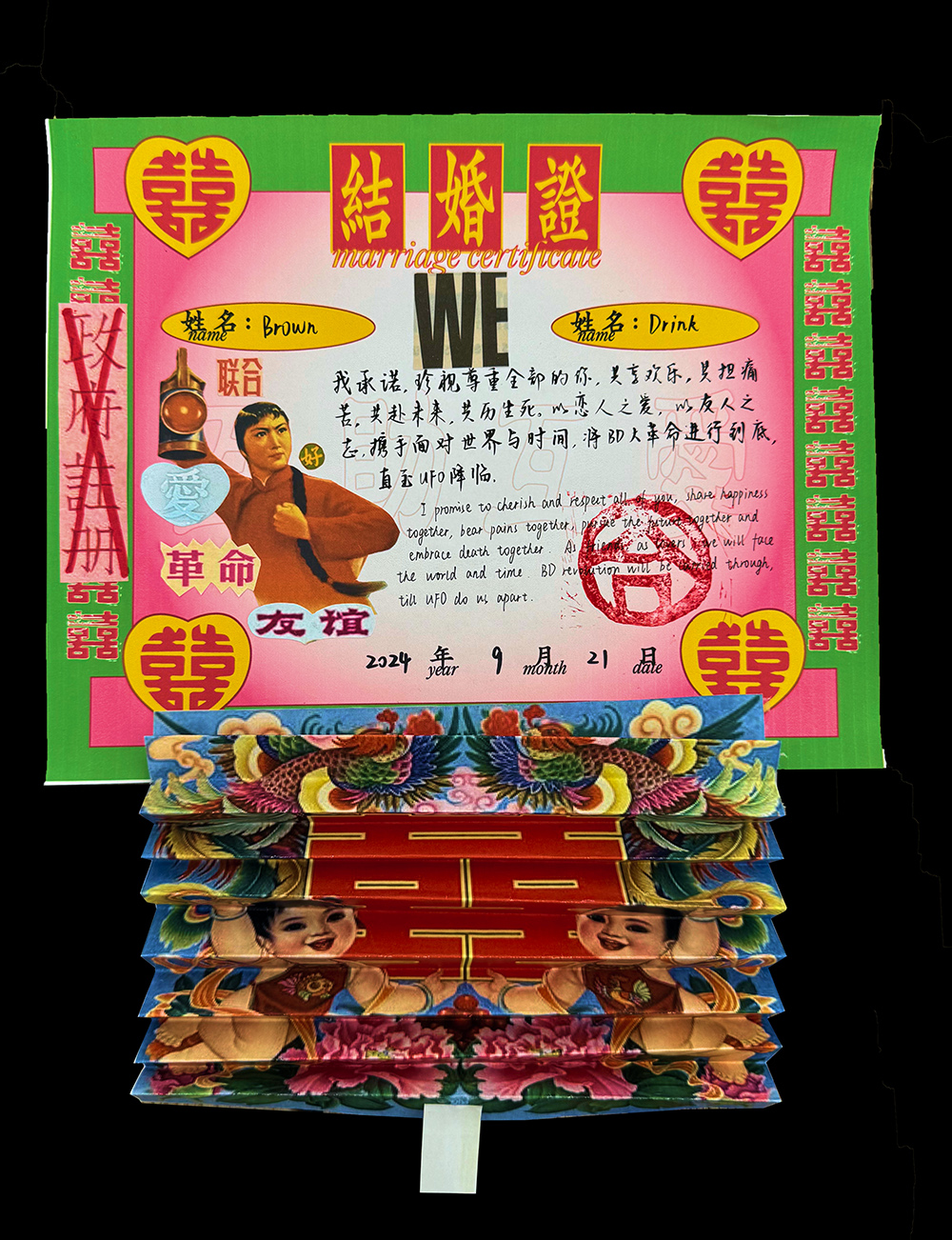

What makes Forever United Gay Hearts powerful is not only the visual outcomes, but the collective intimacy of the process. These are not simply community art — they are creative rituals, where making becomes a form of communal care. In a room of strangers-turned-collaborators, scissors move through history with tenderness and defiance. Participants don’t just critique dominant narratives — they rewrite them with their own hands, stories, and laughter. These gatherings reclaim the visual language of state and ceremony, offering space to imagine a different archive — one where queer Asian love is celebrated, documented, and made visible on its own terms.
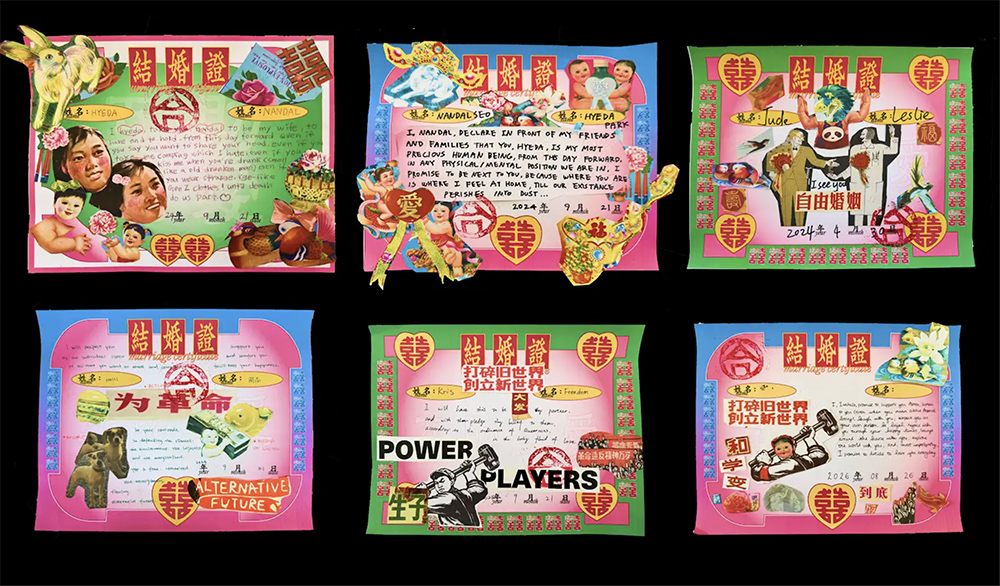

This quiet subversion — personal, grounded, political — finds full expression in Good Day to Marry, a photobook made in collaboration with photographer Nandal Seo. It presents a series of portraits of queer Chinese couples on their wedding days. Beneath each image lies a deeper proposition: that love, especially queer love, is shaped by systems of power. Not just in legal absence, but through silence, distance, and the rituals we are allowed — or denied — the chance to perform.
One couple holds a wedding ceremony over Zoom, split between a flat in London and one in Guangzhou, cutting a homemade sponge cake through a glowing screen. Another pair blows soap bubbles under a tree, their reflections caught in fragile orbs. These images reject the aesthetics of commercial weddings — no tuxedos, no ballgowns, no curated perfection. Instead, Cui captures an intimacy that is improvised, unapproved, fully alive.
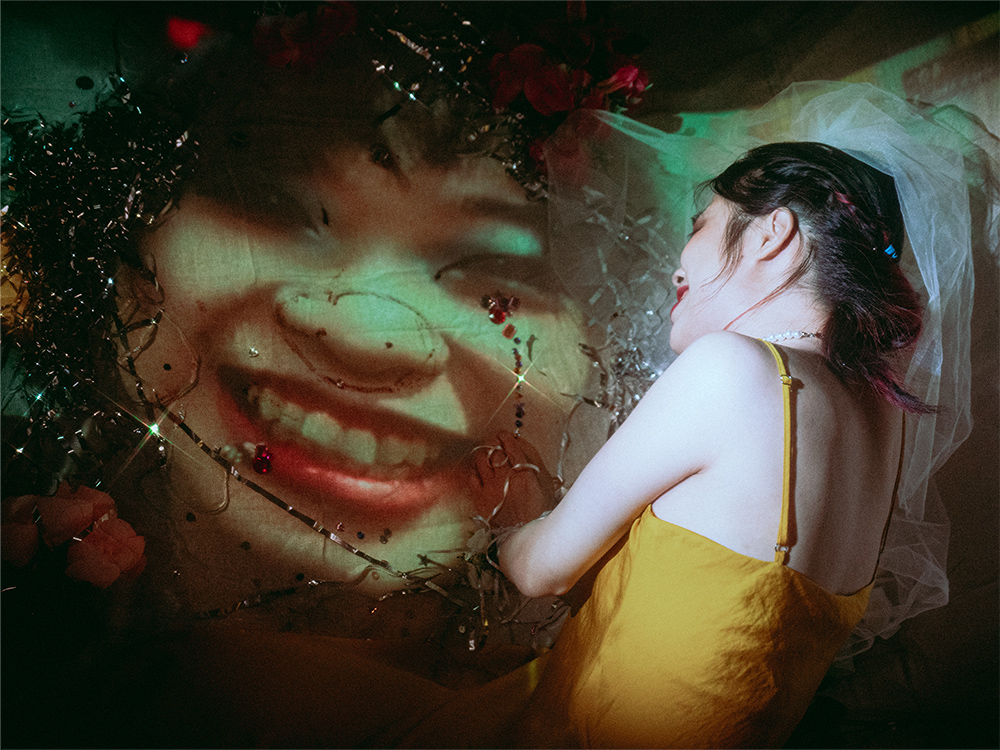

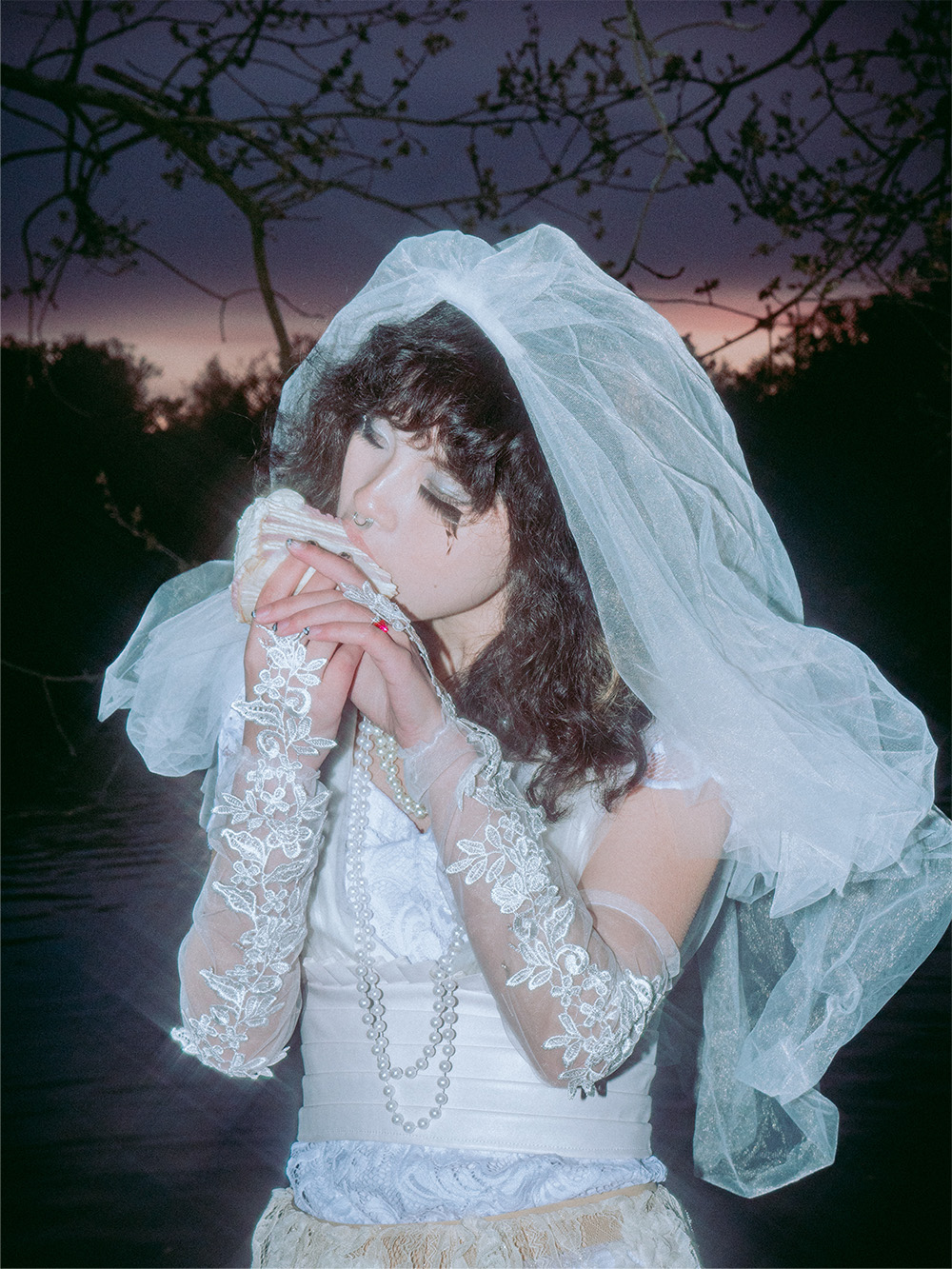

Even the form of the photobook makes a quiet intervention. Spiral-bound like a traditional huánglì (Chinese almanac used to select auspicious wedding dates), it appropriates a symbol of patriarchal authority and flips it. The gesture isn’t loud — but it’s unmistakable. We’ll choose our own timing. Our own meaning.
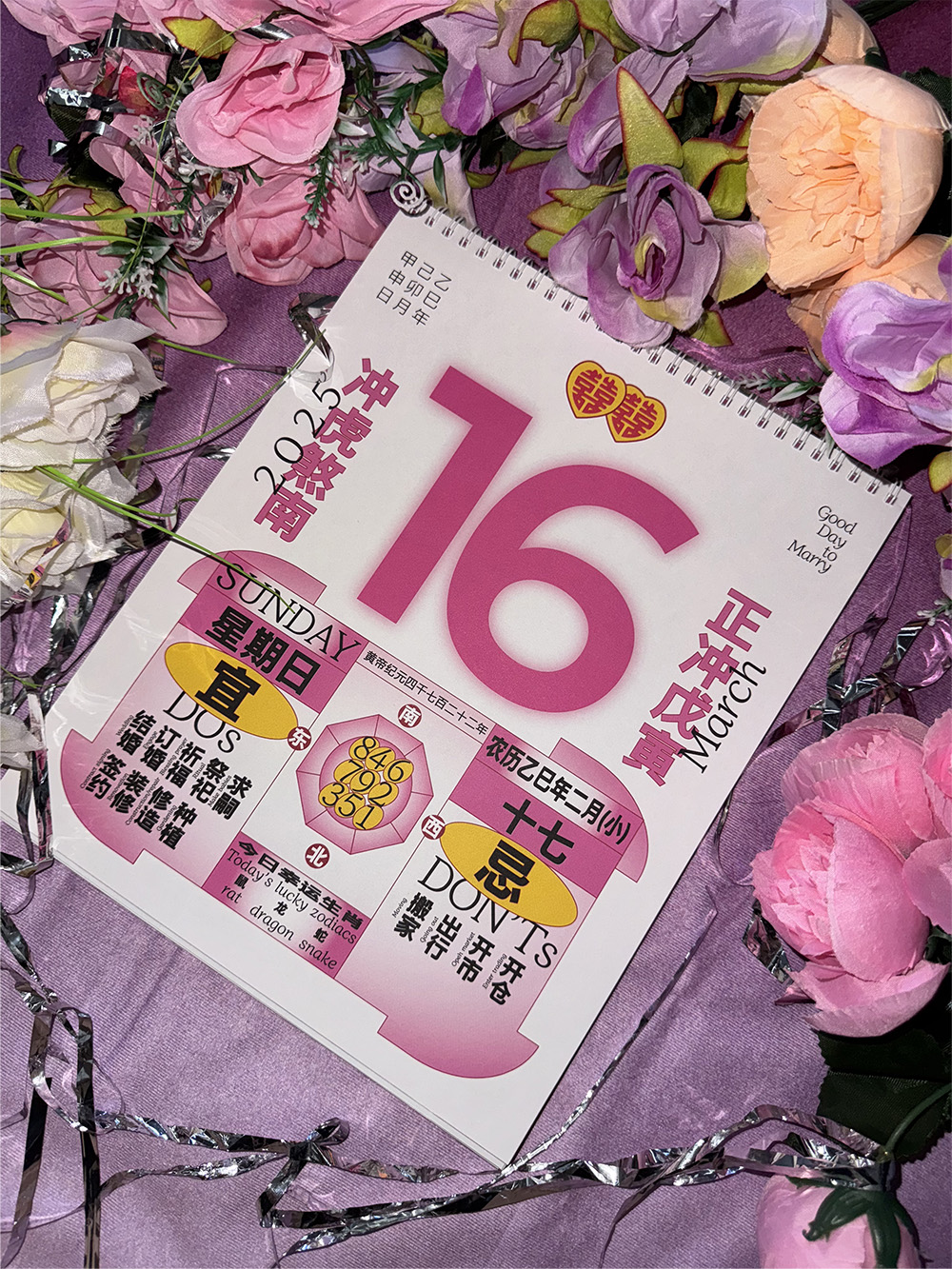

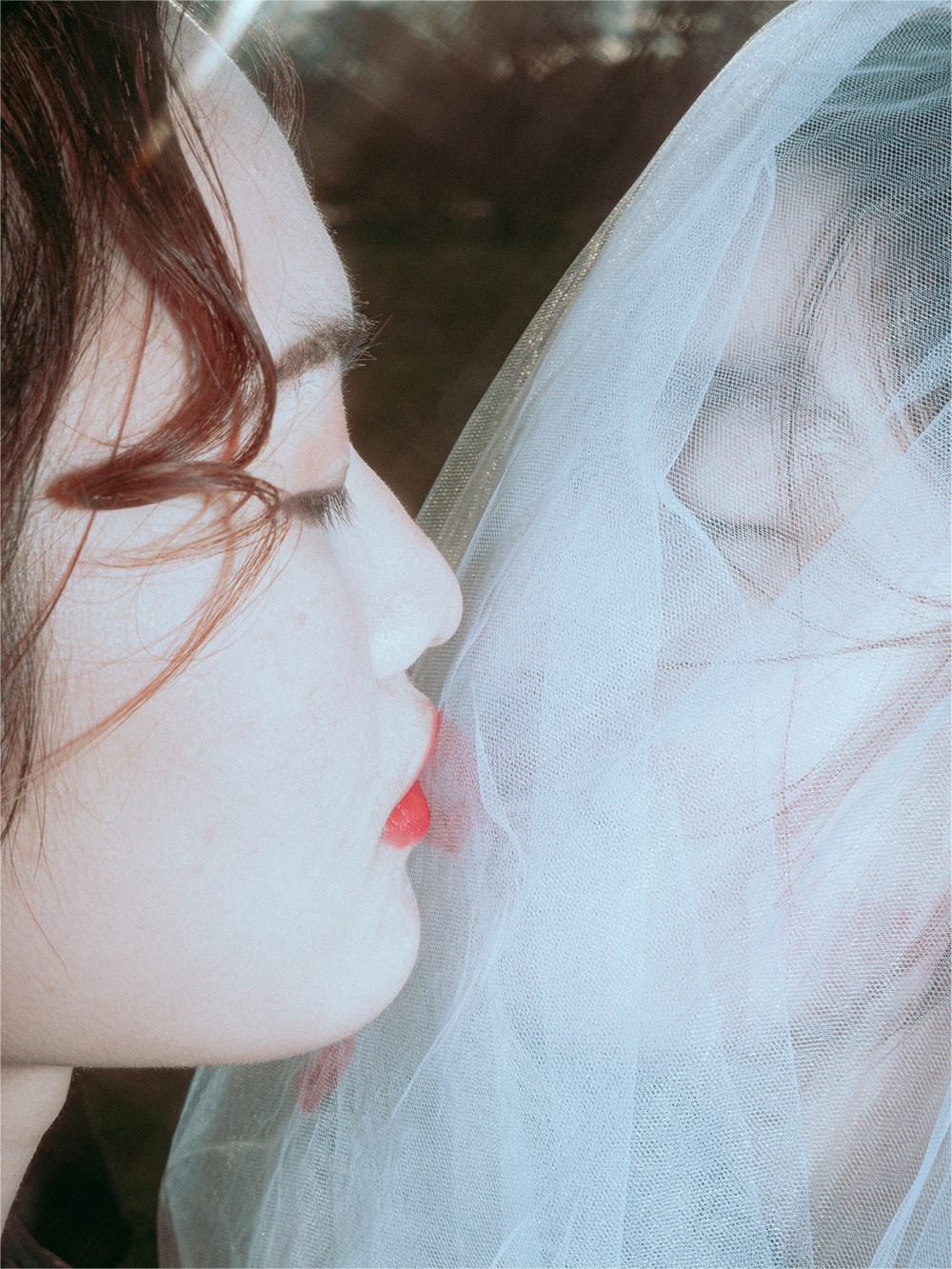

Throughout Cui’s visual practice, there is no separation between aesthetics and politics. Every typeface, image, and printed form is charged — with memory, resistance, and the longing to be seen. In Forever United Gay Hearts, laughter echoes as images are made. In Good Day to Marry, the photographs are strange and dreamy. The letterforms in Women in Chinese Characters twist and stretch, breaking from their inherited grid.
Because for Cui, power doesn’t only suppress — it can be reclaimed. Not through spectacle, but through intimacy: small gestures, quiet resistance, acts of care. In a world that often marginalizes queer Chinese experiences, Cui’s art doesn’t ask for permission to exist. It already does — in whispers, in images, in fragments of time carved out between continents.
There is no neutral visual language. But there is visual language that dares to be tender, to be critical, to be rooted in lived experience. Yu Zoe Cui’s work reminds us that every character, every photograph, every printed page carries weight. And within those constraints, there remains space — to reframe, to resist, to love.
Great Job Abbie Wilson & the Team @ Our Culture Source link for sharing this story.





